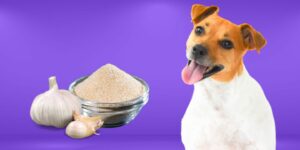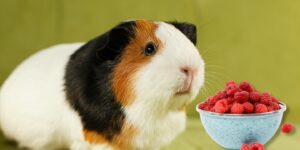The short answer is no, birds should not eat chocolate. Chocolate is toxic to birds and can be harmful or even lethal to them if ingested. It is crucial to understand bird diets and take the necessary precautions to keep them safe and healthy.
Importance of understanding bird diets
Understanding what your bird should and should not eat is essential for maintaining its overall health and well-being. Common misconceptions about what is safe for birds to eat can lead to severe consequences.
Common misconceptions about bird diets
Some people may mistakenly believe that birds can safely consume any type of food, leading them to feed their birds an inappropriate diet.
The dangers of feeding birds inappropriate foods
Feeding birds inappropriate foods can lead to serious health issues, including malnutrition, obesity, and toxicity from dangerous substances like theobromine found in chocolate.
Chocolate: What Makes It Toxic for Birds
Chocolate's toxicity for birds mainly comes from a compound called theobromine.
Theobromine explained
Theobromine is a stimulant similar to caffeine, found in chocolate and other cocoa products. This compound is toxic to many animals, including birds, and can cause a range of harmful symptoms when ingested.
The effects of caffeine on birds
Caffeine is another stimulant found in chocolate that can adversely affect birds, causing hyperactivity, tremors, and an irregular heartbeat.
The level of toxicity in different types of chocolate
Different types of chocolate have varying levels of theobromine, but all forms can be dangerous to birds. Dark chocolate and baking chocolate typically have the highest concentration of theobromine and are the most toxic.
Symptoms of Chocolate Poisoning in Birds
Chocolate poisoning can manifest in several ways in birds, and the severity of the symptoms can vary depending on factors such as the type and amount of chocolate consumed.
Immediate symptoms
Early symptoms of chocolate poisoning in birds may include rapid breathing, vomiting, diarrhea, and increased heart rate.
Long-term effects
Long-term effects of chocolate poisoning in birds can include neurological issues, kidney failure, and in extreme cases, death.
Factors affecting the severity of poisoning
The severity of chocolate poisoning in birds depends on factors such as the bird's size, the type and amount of chocolate ingested, and the bird's overall health.
Treating Chocolate Poisoning in Birds
If you suspect your bird has consumed chocolate, it is important to act quickly and seek professional help if necessary.
What to do if a bird consumes chocolate
If a bird consumes chocolate, monitor it closely for any signs of poisoning. Do not attempt to make the bird vomit or give it any medications without consulting a veterinarian.
When to seek professional help
Seek professional help immediately if your bird displays any symptoms of chocolate poisoning or if you are unsure how much chocolate the bird has consumed.
Treatment options and prognosis
Treatment for chocolate poisoning in birds may include supportive care, fluid therapy, and medications to counteract the effects of theobromine. The prognosis for birds experiencing chocolate poisoning can vary, and early intervention is crucial for a positive outcome.
Preventing Chocolate Exposure in Birds
Prevention is key to keeping your birds safe from chocolate and other toxic substances.
Proper storage of chocolate and other toxic foods
Store chocolate and other toxic foods out of reach of your birds, such as in a cabinet or on a high shelf.
Supervising birds during free flight time
Supervise your birds during free-flight time to ensure they do not come into contact with harmful substances.
Educating others on the dangers of feeding birds chocolate
Spread awareness about the dangers of feeding birds chocolate and other toxic foods to help protect birds from accidental poisoning.
Safe Treats for Birds
Instead of chocolate, consider offering your birds safe and healthy treats.
Fruits and vegetables
Offer a variety of fresh fruits and vegetables to provide essential vitamins and minerals.
Seeds and nuts
Seeds and nuts can be a healthy treat for birds when given in moderation.
Commercial bird treats
Commercial bird treats specifically formulated for your bird's species can be a safe and balanced treat option.
The Importance of a Balanced Diet for Birds
Proper nutrition plays a significant role in maintaining a bird's overall health.
The role of nutrition in bird health
A balanced diet helps support a bird's immune system, ensures proper growth and development, and maintains overall health.
Recognizing and addressing nutritional deficiencies
Signs of nutritional deficiencies in birds may include lethargy, feather plucking, and weakened immunity. Consult with a veterinarian for proper guidance in addressing any nutritional concerns.
Transitioning to a healthier diet
Gradually introduce healthier diet options to your bird by slowly mixing them with their current food to make the change as smooth as possible.
Conclusion
In conclusion, chocolate is toxic to birds and should never be fed to them. Preventing accidental chocolate ingestion and maintaining a balanced diet are essential for ensuring your bird's health and safety. Be proactive in safeguarding your feathered friends from potential harm and provide them with a safe and healthy environment to thrive.


























